If You’re Over 65, Don’t Wear These 5 Clothing Items to Sleep

Getting dressed for bed is different from picking out what to put on for going out or physical activities. But while the obvious answer might feel like it should be to just go with whatever feels the most comfortable, things are a little more complicated for seniors. There are several health and safety considerations older adults should make before they get under the covers. Read on for the clothing items you shouldn’t wear to sleep if you’re over 65, according to experts.
RELATED: If You’re Over 65, Don’t Wear These 7 Clothing Items on a Walk.
1
Tight clothing
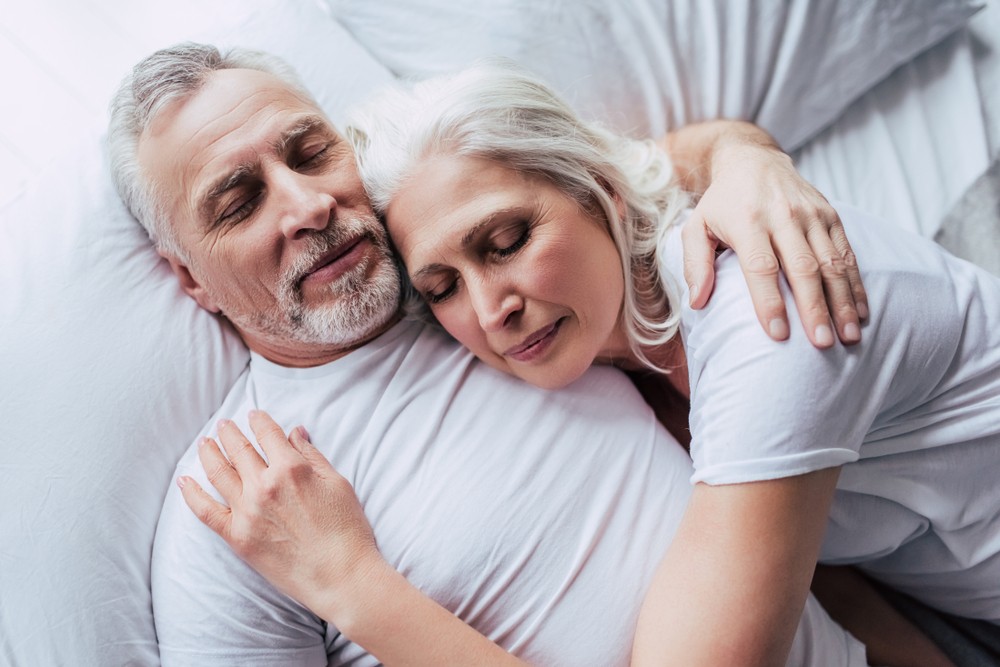
Even if it feels good to wear a form-fitting outfit to sleep, you might want to reconsider your options, according to Stephen Bleeker, founder and owner of Assurance Home Care.
“Tight clothing can impair circulation and make it harder to relax, potentially disturbing sleep quality,” he says. “Opt for breathable, loose-fitting alternatives instead.”
2
Silk pajamas
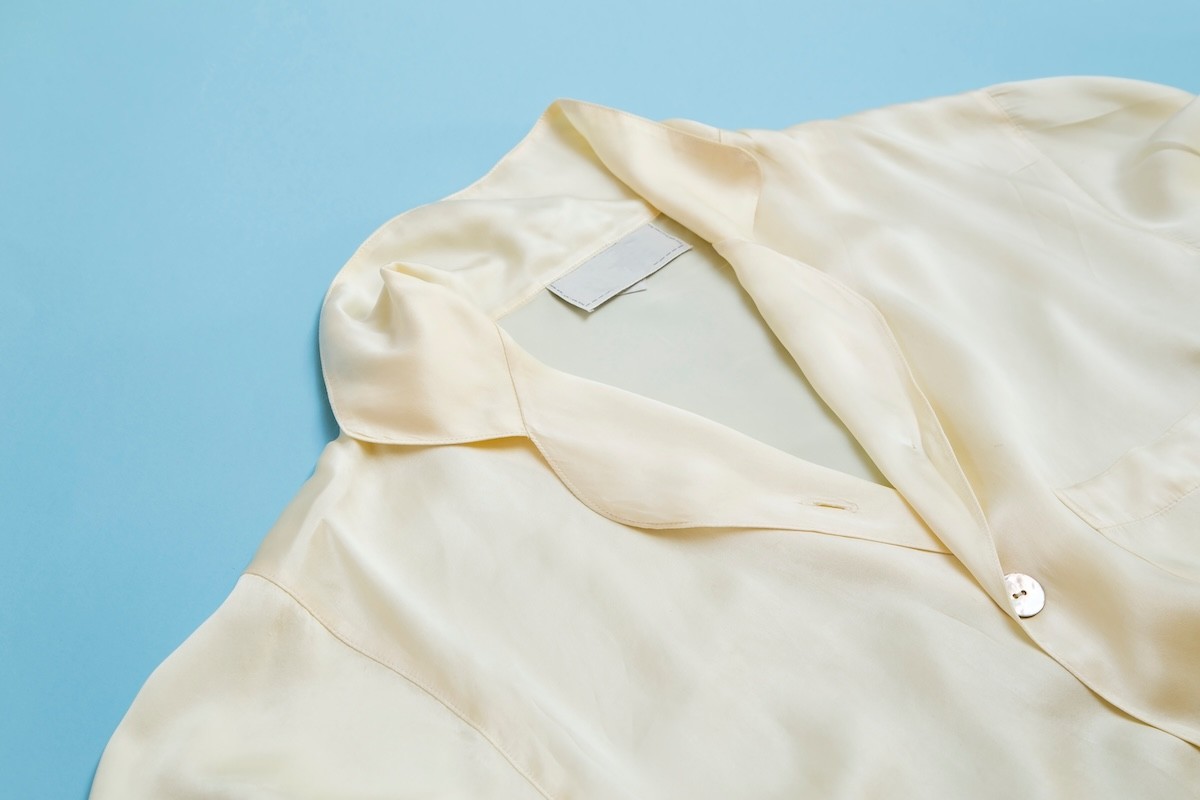
Many adults love donning silk pajamas for their pleasant look and feel, but experts say it’s a bad choice when it comes to nightwear.
“Silk traps heat and prevents moisture from wicking, which can lead to overheating in the night—especially for those who suffer from night sweats or hot flashes,” Dharam Khalsa, senior care expert at Mirador, tells Best Life. “And according to the Centers for Disease Control and Prevention (CDC), our ability to regulate our body temperature diminishes as we age, so silk pajamas are especially problematic for seniors.”
He says that bamboo viscose is a better alternative for nighttime fabrics: “This material has excellent airflow and moisture-wicking properties, allowing you to stay at a comfortable temperature all night.”
3
Heavy layers
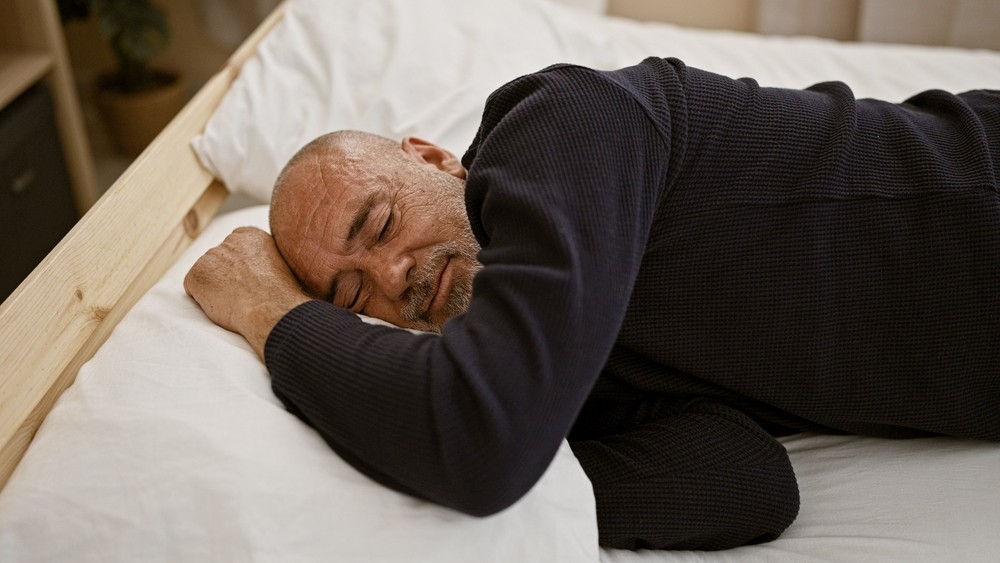
Bundling up for bed might seem like the best way to stay warm and get cozy, but according to Bleeker, it could create some other serious issues.
“They say, ‘when in doubt, overdress,’ but when it comes to sleep, overdressing can lead to overheating during the night, especially if body temperature fluctuates,” he tells Best Life.
Instead, he says to opt for lightweight pajamas with cozy but breathable bedding for better temperature control.
“I’d also recommend picking linen or cotton over polyester for sleepwear to help prevent overheating,” Bleeker adds.
RELATED: Doctor Reveals the No. 1 Supplement to Take If You’re Getting Older.
4
Pajamas with buttons or zippers
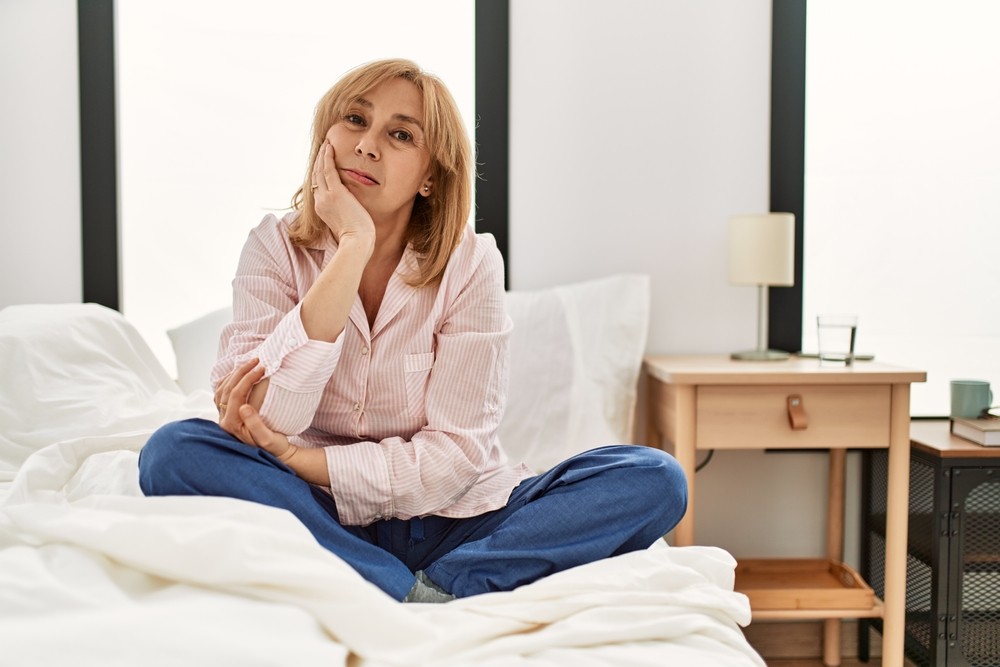
It might feel nice to button up your favorite pajama set when getting ready for bed, but you might want to consider a pullover option instead.
“Seniors with reduced dexterity or arthritis may find it hard to remove them when necessary,” says James Bowdler, founder of PrimeCarers. “It also makes it difficult for caregivers to offer needed assistance in emergency situations, such as nighttime restroom trips.”
And that’s not the only potential issue. “They could also press into the skin and cause irritation while sleeping,” says Merle D. Griff, PhD, CEO and founder of SarahCare.
5
Accessories
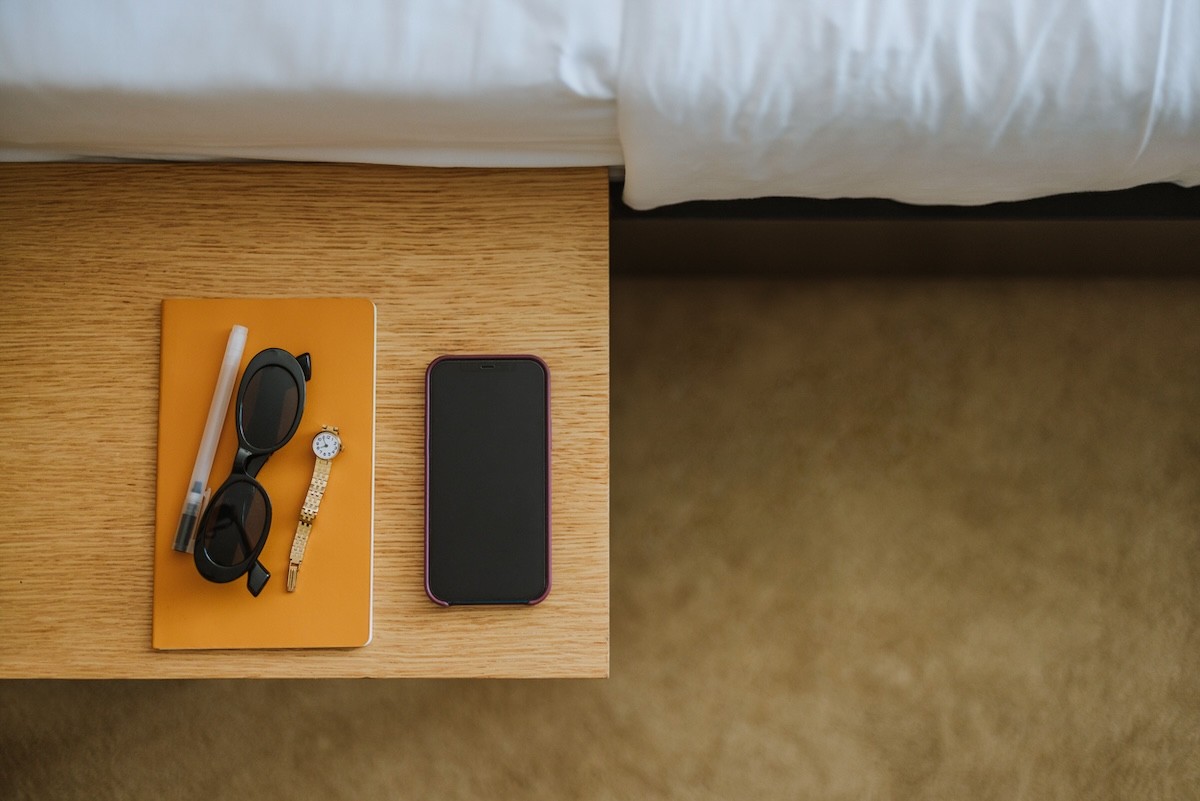
You can always look your best when you’re about to head out for that dinner reservation or get-together with friends. But wearing any kind of unnecessary clothing item after bedtime should be probably be avoided.
“Don’t cling to the bling, jewelry, or watches that can get caught on bedding or cause unnecessary discomfort,” suggests Bleeker. “Keep it simple and leave the extras on the nightstand.”